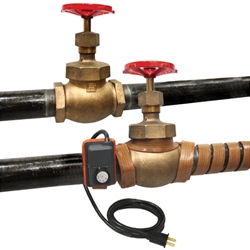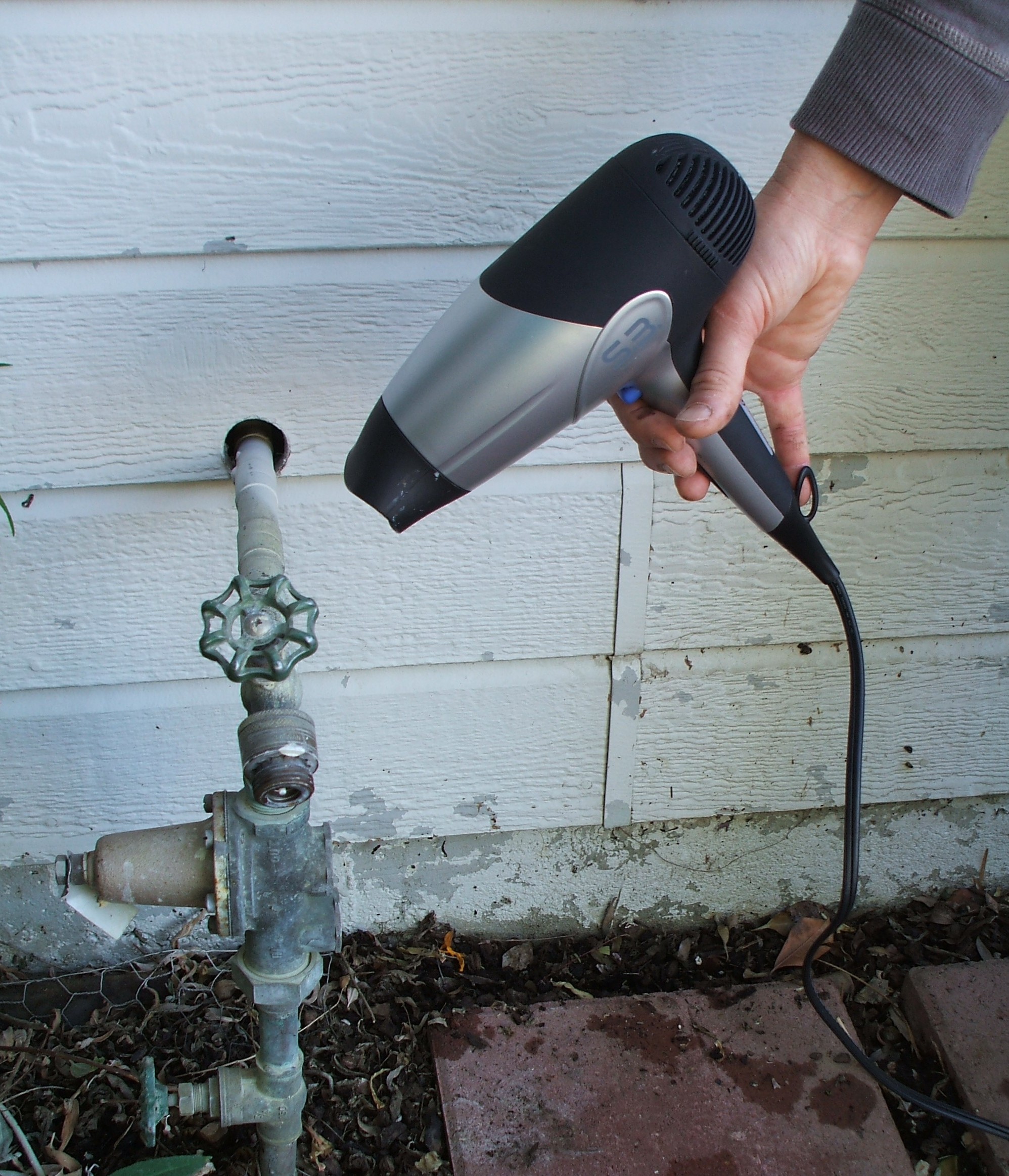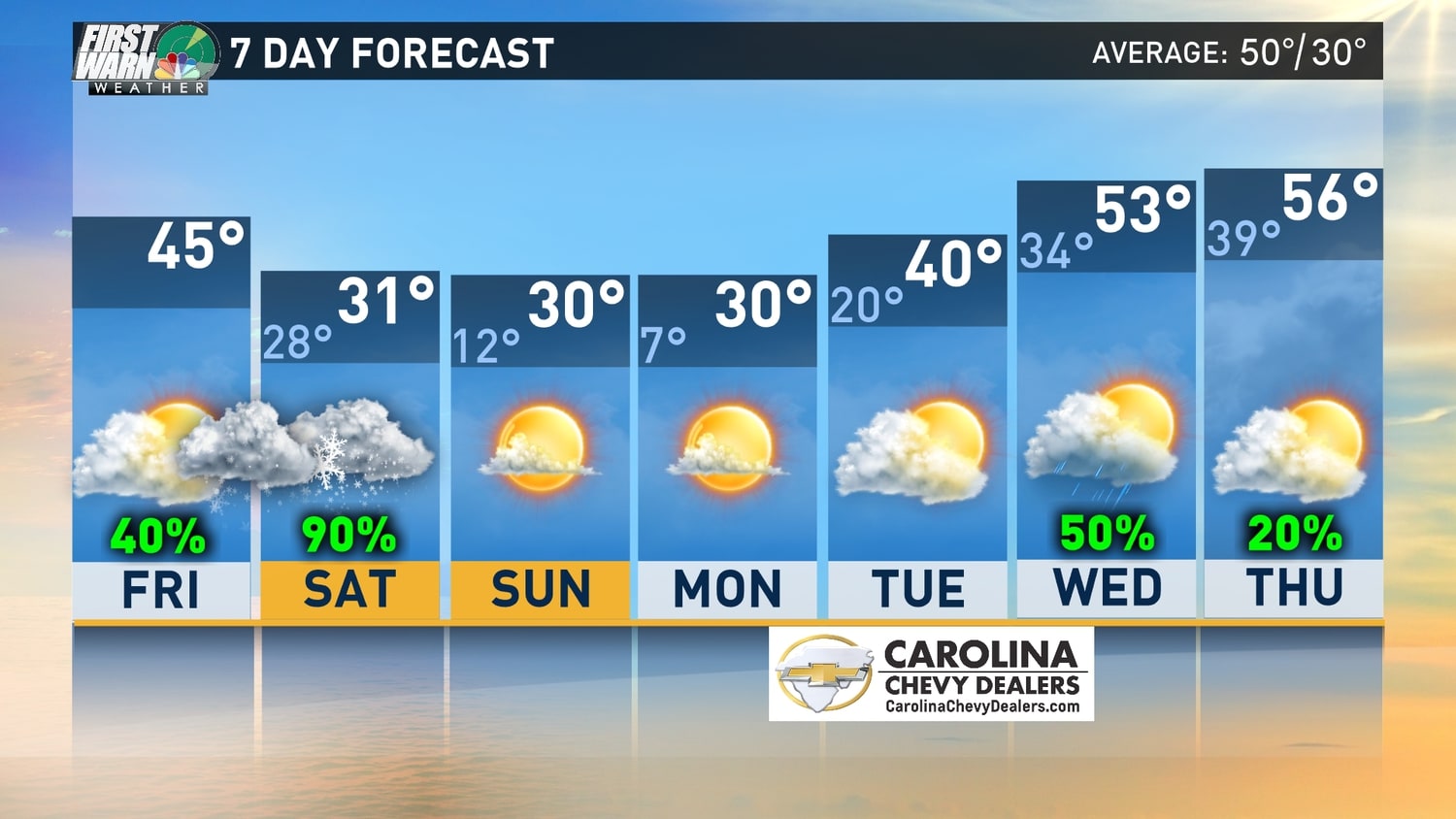Prevent Frozen Pipes in Inclement Weather
This weekend, snow, ice, and freezing temps are in the forecast for the Southeastern states. While homeowners ensure there is plenty of bread and milk and avoid traveling in icy conditions, it is also critical that steps are taken to prevent frozen or broken pipes.
Below is advice from Allstate’s website:
Prevent Your Pipes From Freezing
-

Silicone Rubber Heating Tapes with Adjustable Thermostat
Disconnect all gardening hoses and install covers on all outside faucets.
- Keep your house temperature at 68 degrees or higher, even if you’re leaving the house for an extended period of time.
- Open cabinet doors below sinks to allow heat from the home to circulate.
- Identify the location of the main water valve and the valve on your water heater. (Learning the location of these valves may come in handy during an emergency.)
- Wrap pipes nearest exterior walls and in craw
l spaces with pipe insulation or with heating tape. This can prevent freezing, especially for interior pipes that run along outside walls. - Close all windows near water pipes; cover or close open-air vents. Freezing temperatures combined with wind drafts can cause pipes to freeze more frequently.
- Heat your basement and consider weather sealing your windows.
- Insulate outside walls and unheated areas of your home.
- If you plan to be away from home for an extended period of time, shut off water supply valves to your washing machine.
Monitor Freezing Pipe Conditions
 Allow a faucet to drip slightly (lukewarm water) in order to minimize freezing.
Allow a faucet to drip slightly (lukewarm water) in order to minimize freezing.- The first sign of freezing is reduced water flow from a faucet.
- Check your faucets for water flow and pressure before you go to sleep and again when you wake up.
- Check pipes around your water meter, in unheated areas, near exterior walls and in crawl spaces.
- These tend to be vulnerable to freezing conditions.
- Identify cold air drafts coming in from a flue or chimney chase and caulk gaps that are near pipes.
If a Pipe Freezes
- If a faucet or pipe inside your house freezes, you

can thaw it using a good hair dryer.
(For safety purposes, avoid operating a hair dryer around standing water.) - To thaw a frozen pipe, heat water on the stove, soak towels in the hot water and wrap them around cold sections of the pipes.
- When thawing a pipe, start thawing it nearest to the faucet. Make sure the faucet is turned on so that melted water can drip out.
If a Pipe Bursts
- Shut off water at the main valve.
- If the break is in a hot water pipe, the valve on top of the water heater should be closed.
- Call a plumber.* Keep an emergency number nearby for quick access.
*Guthmann recommends Service Plumbing of Charlotte: (704) 895-8998






